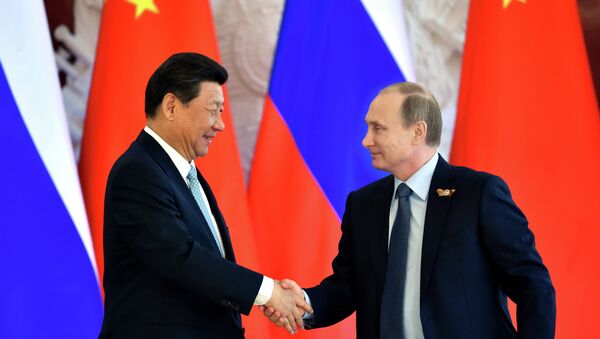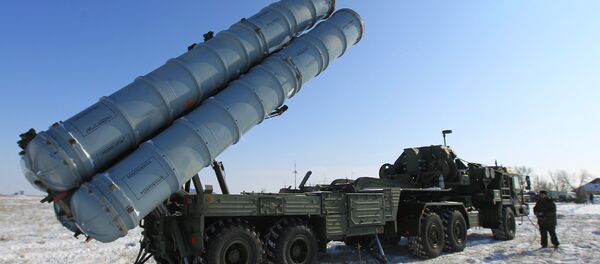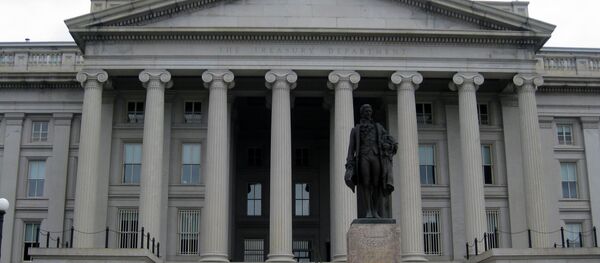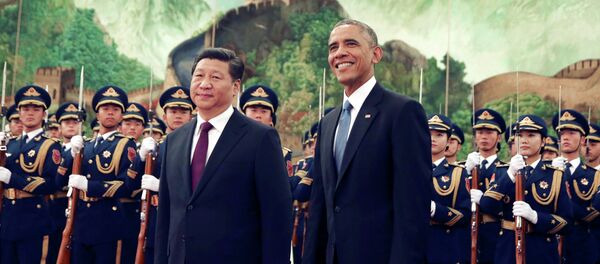In their analysis, recently published in the US-based international affairs magazine The National Interest, experts Michelle Shevin-Coetzee and Axel Hellman warn that when it comes to foreign affairs, US policymakers "should not favor the short-term to the exclusion of the long-term," particularly when it comes to Washington's long-term plans for its so-called 'pivot to East Asia'.
Affiliated with the Center for a New American Security (CNAS), one of Washington's key think tanks on military affairs, Shevin-Coetzee and Hellman warned that "as Russia manages to straddle" the fine line between crisis management and strategic planning, managing "immediate crises and investing in future partnerships," US policymakers must attempt to do the same.
"Yet there are real perils and potential challenges that require careful attention," the analysts warn. These, they suggest, stem from Russia, naturally…
Commenting on China's recent moves to bolster its security position in the Pacific, something which has irritated US policymakers used to American dominance in the region to no end, Shevin-Coetzee and Hellman warn that "recently…it is not only Beijing's actions that should concern American policymakers."
"Russia is developing a closer defense, economic and energy relationship with China and other countries in the region. Although this burgeoning Sino-Russian partnership is not a panacea for each country's woes, it is a particularly convenient one as Moscow secures both alternative export markets and political influence, and Beijing counters the United States' reluctance to craft a new world order favorable to China."
Now, "in light of this newfound entente and Russia's strategic shift eastward," the hawkish analysts suggest, "the Asia-Pacific [region] presents new challenges that were not as salient when the United States first announced the rebalance."
"From a security perspective, Beijing and Moscow are taking actions that could threaten American interests and those of its allies and partners. In particular, Russia plays a key role in China's military modernization, providing the country with advanced missiles, radar and other systems that are central to Beijing's acquisition of anti-access/area denial (A2/AD) capabilities."
Russia's moves to help China beef up its air defenses, according to the analysts, will be sure to "lead American allies and partners, particularly Japan, to fear the growing A2/AD threat in the Asia-Pacific, raising the costs for Washington to respond to future Chinese actions." Reading between the lines, the experts seem to suggest that to the US and its allies, China's growing ability to defend itself against US airpower is somehow 'threatening'.
From an economic standpoint, the CNAS analysts suggest that "a deeper Sino-Russian entente also risks undermining the ability of the United States to project economic and financial power," limiting, for instance, Washington's ability to bring Russia to its knees following the crisis over Ukraine last year.
"Sanctions on Russia imposed by the West, for example, have squeezed Russia's external borrowing by forcing sanctioned corporations to seek emergency funding from the Russian government, thereby drawing down Russia's sovereign reserves. Sino-Russian cooperation in the financial sphere, however, can mitigate these effects. In 2014, Moscow and Beijing signed a currency swap agreement worth $24 billion, a move intended to reduce Moscow's reliance on the dollar and promote the international use of the renminbi."
"Overall," the proponents of American hegemony warn, "financial cooperation between the two countries help project a weaker image of the United States, particularly regarding the role of the US dollar in global markets."
Accordingly, the analysts suggest, "the Sino-Russian entente and the fresh challenges it presents underscore the need for the United States to sustain its focus on the region and broaden the rebalance."
Vaguely alluding to the establishment of "a clear interagency approach to best utilize American diplomatic, financial and military power" to challenge "Russian assertiveness," the analysts do not seem to have any specific recommendations on how the US might deal with China, the other partner in the Moscow-Beijing 'entente'.
Indeed, it remains unclear exactly what options are really open to a Washington increasingly looking to 'contain' China militarily and economically (including via the proposed Trans-Pacific Partnership, a free trade pact which excludes China), while simultaneously trying to diminish Beijing's friendship with Moscow.







